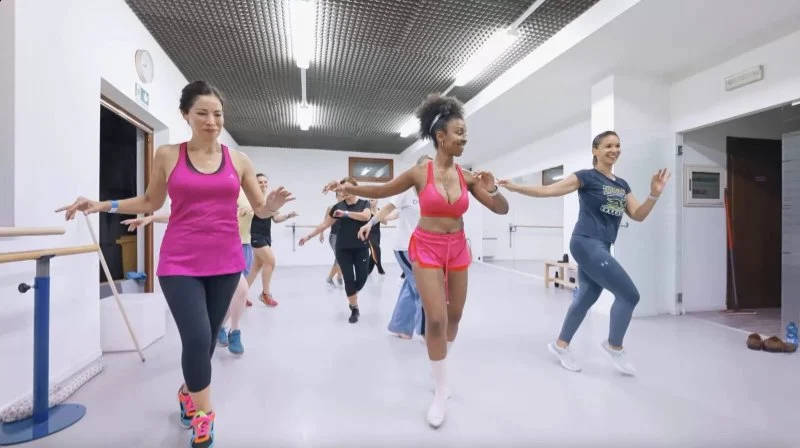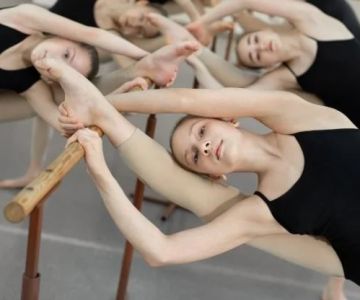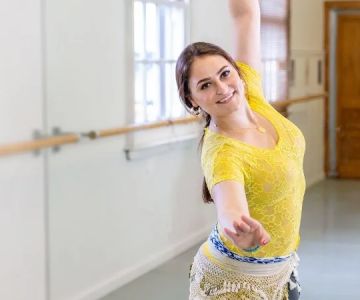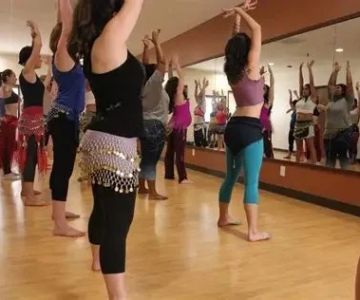
- What is Samba and How Does It Work as a Workout?
- Why Samba is a Popular Workout: The Benefits You Need to Know
- Samba vs. Traditional Workouts: What Makes It Stand Out?
- Samba’s Mental Health Benefits: More Than Just Physical Fitness
- Real-Life Stories: How Samba Transformed Fitness Routines
- How to Get Started with Samba as Your Workout Routine
What is Samba and How Does It Work as a Workout?
Samba is a lively and rhythm-based Brazilian dance that is not only a fun form of expression but also an effective and exciting workout. Known for its quick footwork, hip movements, and fast-paced rhythms, Samba has gained significant popularity as a full-body workout that helps improve cardiovascular health, flexibility, and strength.
Originally associated with the famous Brazilian Carnival, Samba dancing involves various styles and steps that work on different muscle groups. When incorporated into a workout routine, Samba offers both aerobic and strength-building benefits, providing a well-rounded fitness experience. The combination of coordination, balance, and endurance required for Samba makes it a great alternative to traditional gym workouts.
Why Samba is a Popular Workout: The Benefits You Need to Know
Samba’s rise as a popular fitness workout can be attributed to the numerous physical and mental health benefits it provides. Here are the key advantages of adding Samba to your fitness routine:
1. Cardiovascular Health
Samba is an excellent cardiovascular workout, as it keeps your heart rate elevated through continuous movement and rhythmic steps. The fast-paced nature of Samba helps improve endurance and promotes better heart health by increasing blood circulation throughout the body.
2. Weight Loss and Fat Burning
As an aerobic activity, Samba can help you burn calories quickly. By engaging in this dynamic workout, you can shed fat while having fun. The combination of high-intensity movements such as jumps, spins, and hip isolations works to target fat-burning zones, making it an efficient option for weight loss.
3. Full-Body Toning
One of the biggest benefits of Samba is that it tones and strengthens multiple muscle groups. The dance’s movements engage your legs, core, arms, and hips, helping to tone muscles while improving flexibility and coordination. Over time, these dynamic movements build strength and sculpt your body in a balanced way.
4. Improved Coordination and Balance
Because Samba involves intricate footwork and rhythmic patterns, it enhances coordination and balance. The combination of movement patterns strengthens your motor skills, improves body awareness, and helps you maintain stability while moving quickly. This is especially beneficial for improving overall agility and balance in other areas of fitness or daily life.
Samba vs. Traditional Workouts: What Makes It Stand Out?
Compared to traditional workouts, such as running on a treadmill or lifting weights, Samba offers a unique, enjoyable alternative that’s often less monotonous and more engaging. Here’s how it stands out:
1. Fun and Engaging
Unlike traditional gym workouts, which can feel repetitive, Samba provides an exciting, social environment. The upbeat music and energetic moves keep participants engaged, making it easier to stick to your fitness goals. Plus, the dance element adds a sense of artistry and self-expression that other workouts might lack.
2. Low Impact, High Results
While traditional cardio exercises like running or cycling can put stress on your joints, Samba is a lower-impact alternative that reduces the risk of injury while still providing excellent results. The fluid, rhythmic movements are gentler on your body, making Samba suitable for people of different fitness levels and ages.
3. A Full-Body Workout
Traditional workouts may focus on specific muscle groups, but Samba is a full-body workout that engages every part of your body. From your core to your legs, arms, and hips, Samba ensures that your entire body is active throughout the session, providing a more balanced workout experience.
Samba’s Mental Health Benefits: More Than Just Physical Fitness
Samba offers more than just physical benefits—it can also have a positive impact on mental health. Dance, in general, is known to boost mood and reduce stress, and Samba is no exception.
1. Stress Relief and Relaxation
The rhythmic movements and upbeat music help release endorphins, the body’s natural “feel-good” chemicals. As you dance, your focus shifts away from stressors, allowing your mind to relax and improve your mood. Samba provides an effective outlet for relieving stress and tension accumulated throughout the day.
2. Enhanced Confidence and Self-Expression
Learning and mastering the steps of Samba can boost your self-confidence, as it encourages self-expression and body positivity. Samba allows you to embrace your body’s movements and rhythm, making it a liberating and empowering form of exercise.
3. Social Interaction
Samba is often performed in group settings, making it a great way to socialize and meet new people. Group dance classes or events foster a sense of community and belonging, which can contribute to improved mental well-being. The social aspect of Samba also makes it more enjoyable and less isolating than solitary workouts.
Real-Life Stories: How Samba Transformed Fitness Routines
Many individuals have shared how incorporating Samba into their fitness routines has transformed their approach to health. Take, for example, Jessica, a 35-year-old mother of two who struggled to stay motivated with traditional exercise regimens. After she discovered a local Samba class, she found herself looking forward to her workouts each week. Jessica noticed significant improvements in both her physical and mental health, including weight loss, increased energy levels, and reduced stress.
Another story comes from Michael, a 45-year-old who had been diagnosed with high blood pressure. After he began practicing Samba regularly, he noticed that his blood pressure decreased, and he felt more agile and less fatigued. For Michael, Samba not only improved his fitness but also gave him a new passion for movement and music.
How to Get Started with Samba as Your Workout Routine
If you’re interested in incorporating Samba into your workout routine, here are some steps to get started:
- Find a Local Class: Many gyms and dance studios offer Samba classes or other Latin dance-based fitness programs. Look for one that fits your schedule and fitness level.
- Start Slow: If you’re new to dance or Samba, take it easy at first. Start with a beginner class and gradually increase the intensity as you become more comfortable with the steps and rhythms.
- Invest in Comfortable Clothing: Wear comfortable, breathable clothing that allows you to move freely. Dance shoes or comfortable sneakers with good support are also essential for a smooth workout.
- Keep Practicing: Like any skill, Samba requires practice. The more you dance, the better you’ll get at mastering the movements and experiencing the full benefits of the workout.
For the best Samba classes and dance-related products, visit American Dance Academy, where we offer top-notch resources to help you on your fitness journey.







 Chapkis Dance4.0 (19 reviews)
Chapkis Dance4.0 (19 reviews) Fox Run Dance Hall5.0 (2 reviews)
Fox Run Dance Hall5.0 (2 reviews) Dance & Arts Connection4.0 (21 reviews)
Dance & Arts Connection4.0 (21 reviews) Major Productions Studio of Dance SRQ4.0 (17 reviews)
Major Productions Studio of Dance SRQ4.0 (17 reviews) Brownsburg Ballroom Dance Studio5.0 (21 reviews)
Brownsburg Ballroom Dance Studio5.0 (21 reviews) Industrial Ballroom Dance4.0 (8 reviews)
Industrial Ballroom Dance4.0 (8 reviews) Bollywood Dance for Couples: Common Mistakes to Avoid
Bollywood Dance for Couples: Common Mistakes to Avoid Do Kids Switch Dance Schools Often? Understanding the Reasons and Impact
Do Kids Switch Dance Schools Often? Understanding the Reasons and Impact How to Master Bachata Trending on TikTok – Tips and Techniques
How to Master Bachata Trending on TikTok – Tips and Techniques Ballet to Improve Flexibility: Expert Tips for Enhancing Your Stretching Routine
Ballet to Improve Flexibility: Expert Tips for Enhancing Your Stretching Routine Waltz to Try in 2025: Tips from Experts
Waltz to Try in 2025: Tips from Experts Can Dance Schools Reopen in NJ? What Parents and Students Should Know
Can Dance Schools Reopen in NJ? What Parents and Students Should Know